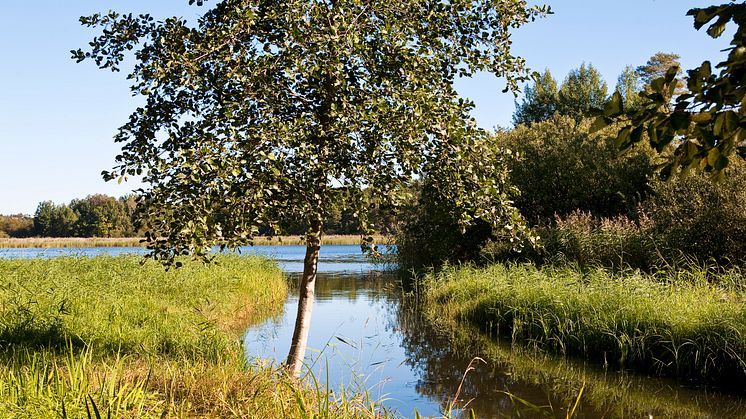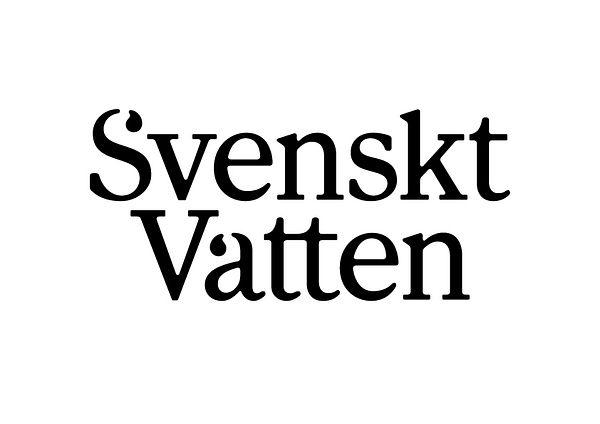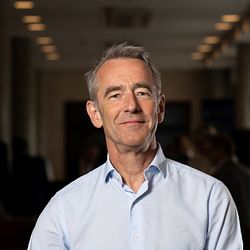
Pressmeddelande -
Time to stop selling over-the-counter medications containing Diclofenac, as it has been traced to many Swedish waterways
At 18 locations in Sweden, residues of the environmentally harmful drug diclofenac have been measured in levels above limit values for lakes, waterways and coastal areas. In addition, there are a further 109 locations that are at risk of exceeding these limits. The cost of eliminating these substances from the environment will skyrocket for the general public unless we make a shift to introduce extended producer responsibility so the pharmaceutical manufacturers can pay their fair share for the waste water treatment. Svenskt Vatten also urges pharmacies and the grocery trade to stop selling the over-the-counter pharmaceuticals that contain hazardous pollutants, such as diclofenac.
Diclofenac is a pain reliever and anti-inflammatory drug, which is found in various types of gels and sprays and is sold without a prescription under a dozen different brands, including Voltaren, Eeze and Diclofenac Orifarm. In the report Waste water Treatment Pains - a report on pharmaceuticals in our water environment, Svenskt Vatten (Swedish Water) wants to focus on the problems of pharmaceutical residues that cause damage to our waters.
“This common occurrence of diclofenac is bad news for our common waters. We need a more controlled distribution of diclofenac”, says Anders Finnson, environmental expert at Svenskt Vatten.
The substance is harmful to aquatic environments and can, among other things, affect fish's kidneys. The Swedish Maritime and Water Administration has classified diclofenac, together with three other pharmaceutical substances, as river basin-specific pollutants, RBSP. A single tube of diclofenac is enough to pollute as much as 232 x 25-meter swimming pools. Last year, 4,4 tonnes were sold according to the Swedish E-health authority's statistics. The over-the-counter gel accounted for about half of the sales.
Rinses off in the shower
A major problem with both gel and spray is that only a small portion of the active substance is absorbed by the body. More than 90 percent is not absorbed, but is rinsed off immediately when one showers, bathes or washes clothes. Then the active substance goes via the drains to the treatment plants and further out into our common waters.
“Diclofenac should not be sold without a prescription as a gel or spray. Both extensive marketing and exposure on store shelves has caused a dramatic increase in the substance’s occurrence in our waterways. Over-the-counter sales of these products needs to be phased out and then sold together with clear environmental information", Anders Finnson concludes.
Svenskt Vatten wants to see measures taken on several levels. Besides pharmacies, doctors and regions being able to contribute, large investments are needed for advanced treatment plants in order to eliminate drug residues. A future-oriented pharmaceutical industry must be involved and pay for advanced treatment in urban waste water treatment plants. The EU should therefore start looking at how extended producer responsibility can be designed and introduced.
Some of Svenskt Vatten’s demands and proposed measures:
● The EU should introduce extended producer responsibility (EPR) in order to regulate the producers of pharmaceuticals. These companies need to finance the treatment of pharmaceutical residues in municipal waste water treatment plants.
● The EU, in cooperation with its Member States, should mandate that environmentally hazardous pharmaceuticals must only be sold with a prescription.
Pharmacies and the grocery trade should stop selling the over-the-counter pharmaceuticals that contain hazardous pollutants, such as diclofenac.
● Doctors should, where medically feasible and safe for the patient, refrain from prescribing medicinal products that are considered to be river basin-specific pollutants, RBSP: estradiol, ethinylestradiol, ciprofloxacin and diclofenac.
● A system needs to be introduced that eco-labels over-the-counter pharmaceuticals.
● The water and waste water organisations, in cooperation with regulatory authorities, must continue to monitor developments and review the need to invest in advanced pharmaceutical treatment at waste water treatment plants.
The easiest way to reduce the dispersal of environmentally harmful pharmaceutical residues is to stop using the pharmaceuticals. That is neither possible nor desired. Patient safety and medical benefits must be the top priority. Sometimes, however, adequate alternative treatments are available.
The unnecessary use of antibiotics needs to be reduced. Transparent information on the use of pharmaceuticals, as well as their environmental impact, is therefore necessary.
It will be necessary to upgrade 50 to 100 Swedish municipal waste water treatment plants in addition to decreasing the use of diclofenac. The cost of this expansion, an investment of 6 to 10 billion SEK (600-1000 M€) and the increased operating costs (30 to 200%) are too much for the public to carry alone. It is necessary to introduce some form of extended producer responsibility; those who contribute to harming the water environment must contribute to the cost of minimising damage in our shared waters.
The pharmaceutical manufacturers must pay their fair share for the treatment of pharmaceutical residues in municipal treatment plants.
To read the report click here.
Ämnen
Svenskt Vatten arbetar för rent dricksvatten och friska sjöar och hav. Som branschorganisation för landets viktigaste livsmedelsproducenter och miljövårdsföretag arbetar vi aktivt med att företräda kommunernas VA-organisationers intressen för att få gehör i nationella och internationella sammanhang och med att bidra till medlemmarnas utveckling. Medlemmarna i Svenskt Vatten levererar dricksvatten och tar emot avloppsvatten från cirka 9 miljoner anslutna kunder.

